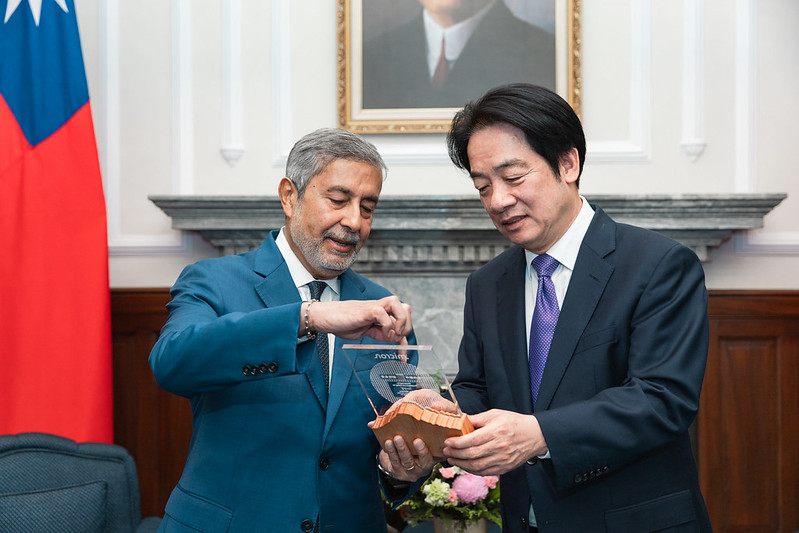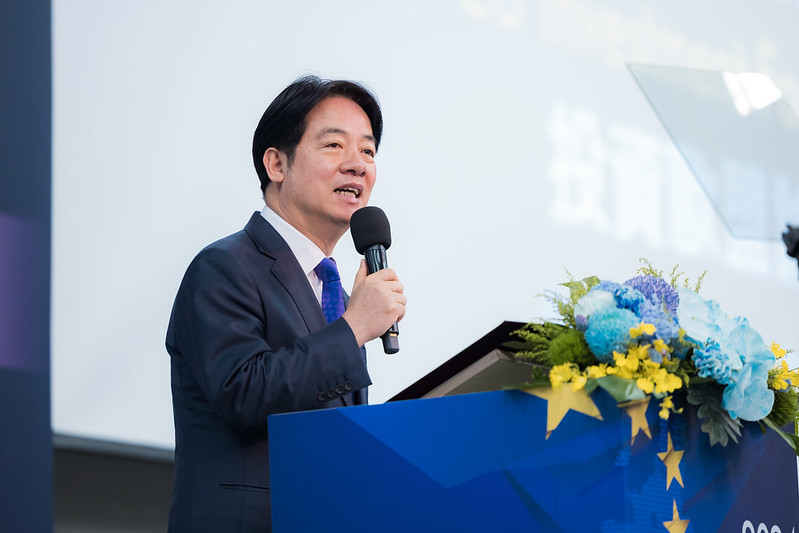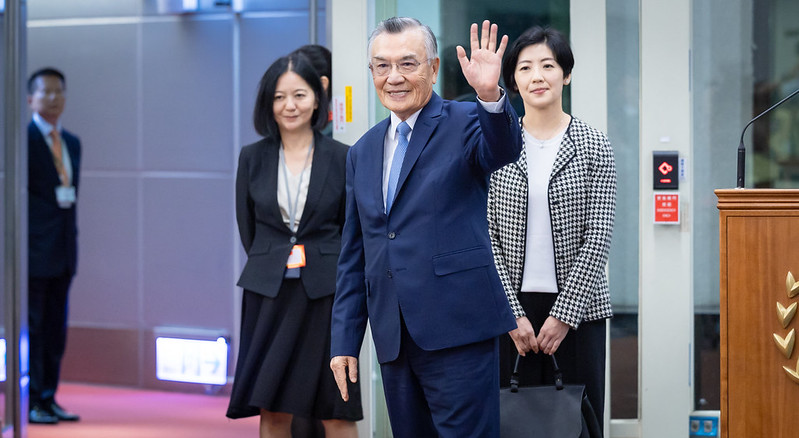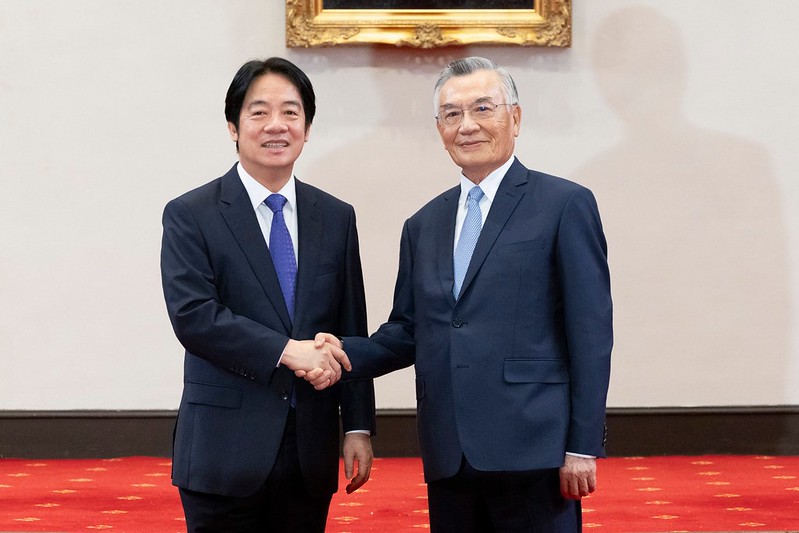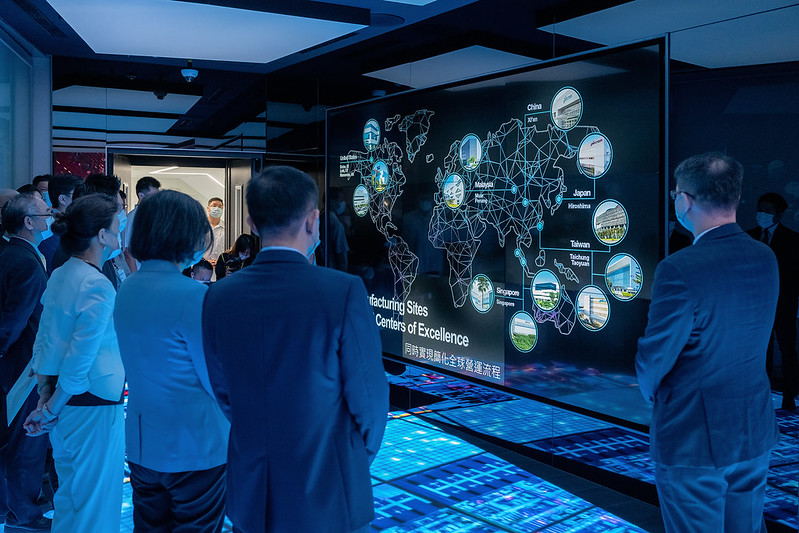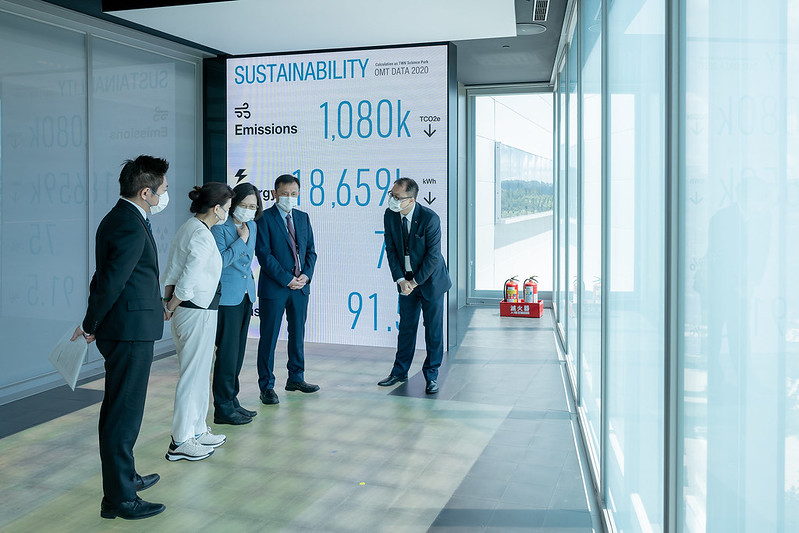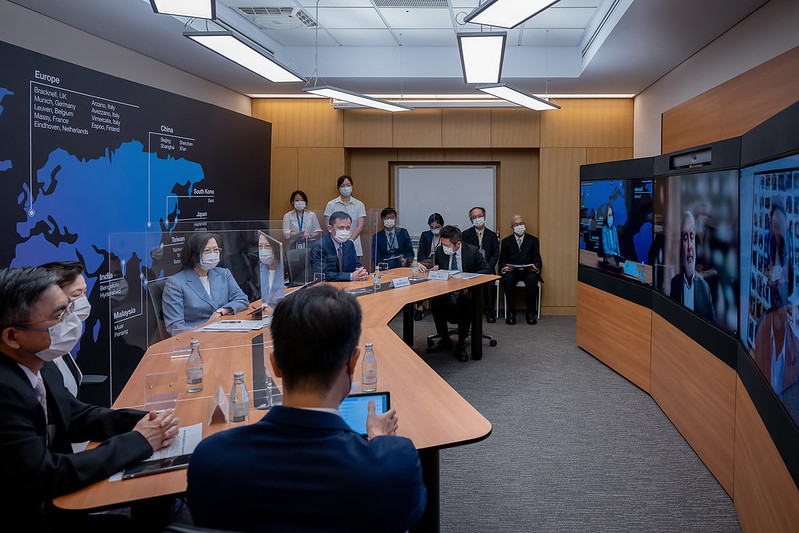News & activities
 News releases
News releases
On the morning of July 7, President Tsai Ing-wen visited a Micron Technology factory in Taichung. In remarks during the visit, President Tsai thanked Micron for its continued investment in Taiwan during the global pandemic, highlighted Micron's efficient construction of an advanced new plant, and expressed hope that Micron will maintain its cooperative partnership with Taiwan.
After arriving at the campus, President Tsai viewed videos introducing the construction of Micron's new plant, smart manufacturing technology, and sustainability principles in order to understand the company's vision and goals. The president then held a videoconference with Micron Technology President and CEO Sanjay Mehrotra.
In remarks delivered in English, President Tsai said she was pleased to visit Micron's A3 plant in Taichung's Central Taiwan Science Park, thanked Micron for its continued investment in Taiwan during the COVID-19 pandemic, and highlighted Micron's efficient construction of the advanced new plant, which provides high-quality job opportunities to Taiwan's youth. The president pointed out that Minister of Economic Affairs Wang Mei-hua (王美花) had also joined her on the visit, and said that other agencies would continue to provide Micron with the assistance it needs, part of cooperation between government and enterprises to continue strengthening Taiwan's technology industry.
Noting that Micron has more than 10,000 employees in Taiwan, and that she herself had seen many young employees during her tour of the plant, President Tsai said she is confident that members of Taiwan's younger generation are excited to have the opportunity to work at a leading international manufacturer like Micron. The president thanked Micron for its continued commitment to investing in Taiwan, and expressed hope that Micron will maintain its cooperative partnership with Taiwan.
At a meeting with Micron employees at the end of the visit, President Tsai asked the employees about their working conditions, and shared the government's approach to and experience in developing Taiwan's semiconductor industry expertise, hoping that the industry can better attract and retain talent.
